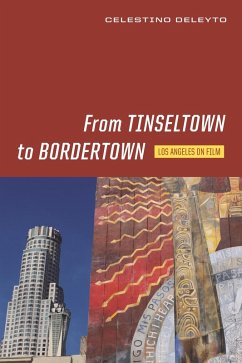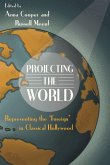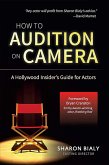Los Angeles is a global metropolis whose history and social narrative is linked to one of its top exports: cinema. L.A. appears on screen more than almost any city since Hollywood and is home to the American film industry. Historically, conversations of social and racial homogeneity have dominated the construction of Los Angeles as a cosmopolitan city, with Hollywood films largely contributing to this image. At the same time, the city is also known for its steady immigration, social inequalities, and exclusionary urban practices, not dissimilar to any other borderland in the world. The Spanish names and sounds within the city are paradoxical in relation to the striking invisibility of its Hispanic residents at many economic, social, and political levels, given their vast numbers. Additionally, the impact of the 1992 Los Angeles riots left the city raw, yet brought about changing discourses and provided Hollywood with the opportunity to rebrand its hometown by projecting to the world a new image in which social uniformity is challenged by diversity. It is for this reason that author Celestino Deleyto decided to take a closer look at how the quintessential cinematic city contributes to the ongoing creation of its own representation on the screen. From Tinseltown to Bordertown: Los Angeles on Film starts from the theoretical premise that place matters. Deleyto sees film as predominantly a spatial system and argues that the space of film and the space of reality are closely intertwined in complex ways and that we should acknowledge the potential of cinema to intervene in the historical process of the construction of urban space, as well as its ability to record place. The author asks to what extent this is also the city that is being constructed by contemporary movies. From Tinseltown to Bordertown offers a unique combination of urban, cultural, and border theory, as well as the author's direct observation and experience of the city's social and human geography with close readings of a selection of films such as Falling Down, White Men Can't Jump, and Collateral. Through these textual analyses, Deleyto tries to situate filmic narratives of Los Angeles within the city itself and find a sense of the "e;real place"e; in their fictional fabrications. While in a certain sense, Los Angeles movies continue to exist within the rather exclusive boundaries of Tinseltown, the special borderliness of the city is becoming more and more evident in cinematic stories. Deleyto's monograph is a fascinating case study on one of the United States' most enigmatic cities. Film scholars with an interest in history and place will appreciate this book.
Dieser Download kann aus rechtlichen Gründen nur mit Rechnungsadresse in A, B, BG, CY, CZ, D, DK, EW, E, FIN, F, GR, HR, H, IRL, I, LT, L, LR, M, NL, PL, P, R, S, SLO, SK ausgeliefert werden.









